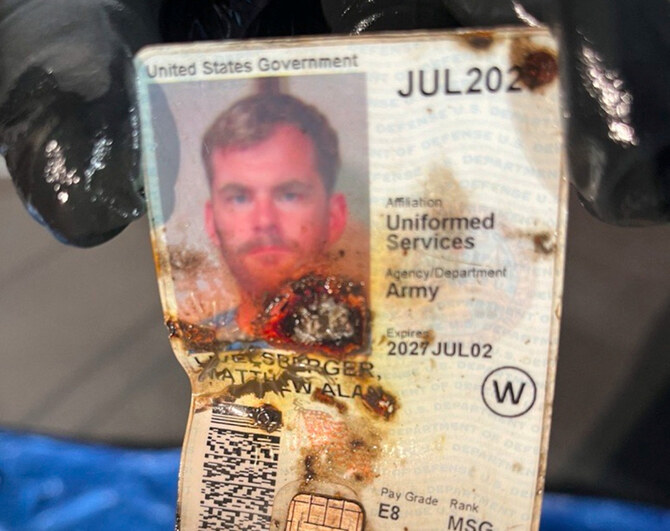CARACAS: Venezuela’s President Nicolas Maduro rejected Sunday an ultimatum by European countries to call snap elections after opposition leader Juan Guaido declared himself the Latin American country’s legitimate leader.
Seven EU states had given Maduro a Sunday deadline to call presidential elections or they would recognize the 35-year-old National Assembly head as the interim president.
A defiant Maduro said in an interview with Spanish television station Sexta that he would not “cave in to pressure” from those calling for his departure.
“Why does the European Union have to tell a country in the world that has already had elections that it has to repeat its presidential elections, because they were not won by their right-wing allies,” said Maduro, interviewed in Caracas.
“They are trying to corner us with ultimatums to force us into an extreme situation of confrontation,” Maduro said.
However, he supported plans for a meeting of Latin American and EU states in a “Contact Group” meeting in Montevideo next Thursday as it could lead to a “dialogue among Venezuelans to resolve our issues.”
And he called on Guaido for “face to face” talks, which the younger man has already rejected.
Guaido stunned the world on January 23 when he declared himself acting president at an opposition rally. Taking his authority from the constitution as National Assembly leader, he said Maduro’s presidency was “illegitimate” as it was founded on flawed elections.
Guaido is trying to force the socialist leader from power so he can set up a transitional government and hold new presidential elections.
Already recognized by the United States, Canada, Australia and several Latin American countries, he began to exercise authority for the first time this weekend, calling on the army to allow in humanitarian aid to a nation wracked by economic crisis.
“We are going to exercise our powers to deal with the crisis, restore democracy and achieve freedom,” Guaido said Sunday on Twitter.
He was also expected to announce a date for the arrival of humanitarian aid from the US — a path Maduro believes will lead to a US-led military intervention.
Guaido says up to 300,000 people are “at risk of death” in Venezuela for want of humanitarian aid.
In Washington, US President Donald Trump warned that military intervention remains “an option” for dealing with the crisis in oil-rich but impoverished Venezuela.
Earlier Sunday, Maduro addressed troops on military exercises in Venezuela’s coastal northeast, calling on them for “maximum cohesion” a day after a top Air Force general publicly sided with Guaido.
The opposition “want to deliver the country in pieces to the gringo empire and the local oligarchies,” Maduro told the soldiers.
Seven European nations, including Britain, France, Germany and Spain, had given Maduro eight days to call elections or they would also back Guaido from midnight Sunday.
“If between now and this evening Mr.Maduro does not commit to organizing presidential elections, we will consider that Mr.Guaido is legitimate to organize them in his place,” France’s European Affairs Minister Nathalie Loiseau told French media on Sunday.
Tens of thousands of people turned out Saturday for competing shows of support for Guaido and for Maduro who was sworn in January 10 to a disputed second six-year term.
During the protest, Guaido announced the installation of collection centers for medicine and food — items lacking in Venezuela — in neighboring Colombia and Brazil.
Speaking at a pro-regime demonstration marking 20 years since his predecessor Hugo Chavez came to power, Maduro reiterated his call to bring forward elections for the opposition-held national assembly.
“They want to bring forward elections, let’s have elections,” he said.
Under Maduro’s stewardship, oil-dependent Venezuela has lurched into an economic crisis that has left the country suffering from hyperinflation and shortages of food and medicine.
But at his rally on Saturday, he called the opposition “imperialist beggars,” claiming a US pledge to deliver $20 million in aid would precede military intervention.
Guaido also called for a new demonstration on February 12, and another protest to push for the entry of aid.
Speaking at the European Union’s headquarters in the east of the capital, he said this month “should be decisive.”
All eyes are on the military, which has so far been Maduro’s main pillar of support, but there have been signs of unrest in the ranks.
On January 21, a group of 27 soldiers rose up against Maduro in Caracas. Although that was quickly suppressed, it helped spark a week of protests in which 40 people were killed in clashes with security forces, with hundreds more arrested, according to the United Nations.
Meanwhile, the 14-nation Lima Group — made up of Canada and Latin American countries — meets in Ottawa on Monday. Eleven of its members have recognized Guaido.



























